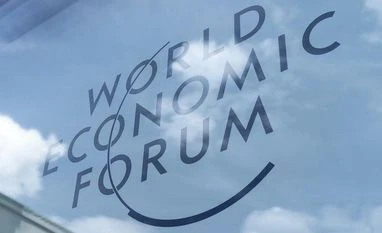India was at the centre of many dialogues on emerging issues ranging from crypto technologies to climate change. More than one hundred Indian delegates which included CEOs, unicorn founders and political leaders were at Davos.
"In terms of numbers and specifically when it comes to government, we have record numbers from India," said Sriram Gutta, head of India agenda at the Forum. "We currently work with many states on diverse initiatives, including food innovation and agri tech, advanced manufacturing and production, drones, and electric vehicles, among others."
The World Economic Forum (WEF) launched the India chapter of the Alliance of CEO Climate Action Leaders on Monday to supercharge India's climate action and decarbonisation efforts.
Here's on wrap on what happened at Davos:
Russia-Ukraine War
With countless sessions about the ongoing impact of Russia's invasion, Ukraine's President Volodymyr Zelenskyy and Foreign Ministry Dmytro Kuleba both thanked the international community for their support.
Zelenskyy called for "maximum sanctions" on Russia, including a ban on all Russian banks, a Russian oil embargo and stopping all trade with Russia.
European Commission President Ursula von der Leyen, Nato Secretary-General Jens Stoltenberg and Spain Prime Minister Pedro Sánchez all issued calls for continued unity.
"This is not a matter of Ukraine's survival. It is not about Europe. It is about the entire global community. Ukraine must win this war and Putin's aggression must be countered and we will do everything to ensure that," the ECB President said.
German Chancellor Olaf Scholz's message? We can't allow Russia to win this war.
Food and energy crisis
Food and energy security and two crises linked to the war in Ukraine were also high on the agenda this year.
Speaking on Day 1 of the Annual Meeting, International Energy Agency Executive Director Fatih Birol said that it was the first truly global energy crisis, while on Wednesday Dmytro Kuleba warned that Ukraine will face a multi-year food crisis if things don't change
Addressing the event ‘India at 75: Strategic Outlook’, Commerce minister Piyush Goyal said even as challenges continue to remain on the economic front, the Indian government is conscious of moving forward and is aware of what to focus on.
Climate change
Linked to energy is the environment and the ever-changing climate, but Birol said world shouldn't need to chose between a climate and energy crisis.
US Special Presidential Envoy for Climate John Kerry launched First Movers Coalition, a global initiative aimed at decarbonising the heavy industry and long-distance transport sectors responsible for 30 per cent of global emissions.
China has pledged to plant and conserve 70 billion trees by 2030, responding to the WEF1t.org initiative.
European Central Bank President Christine Lagarde emphasised the crucial role the private sector must play and said it is important that business and industry leaders live up to the commitments of the European Green Deal.
The economy
Over the five days, experts discussed the impact of the war on the global economy. IMF's Gita Gopinath said the war had been a 'major setback' to the recovery from the Covid-19 pandemic.
Gopinath said advanced economies will be back on track by 2024, but developing economies will be 5 per cent below where they would have been otherwise.
The panelists discussed that the recovery from the Covid-19 crisis has been deeply uneven within and between countries, depending on their access to fiscal resources and vaccines.
Health wise
The ongoing impact of the Covid-19 pandemic was central to many discussions and we also held discussions on preparing for the next pandemic, mental health and health equity.
Pfizer has announced it is to supply all its current and future patent-protected medicines and vaccines on a not-for-profit basis to 45 lower-income countries and is talking to other big drugmakers about similar steps.
Addressing a session on 'Closing the vaccines gap', Health Minister Mansukh Mandaviya also extended support to Africa in augmenting the research and development capability of African countries on medical countermeasures.
Unlock 30+ premium stories daily hand-picked by our editors, across devices on browser and app.
Pick your 5 favourite companies, get a daily email with all news updates on them.
Full access to our intuitive epaper - clip, save, share articles from any device; newspaper archives from 2006.
Preferential invites to Business Standard events.
Curated newsletters on markets, personal finance, policy & politics, start-ups, technology, and more.
)